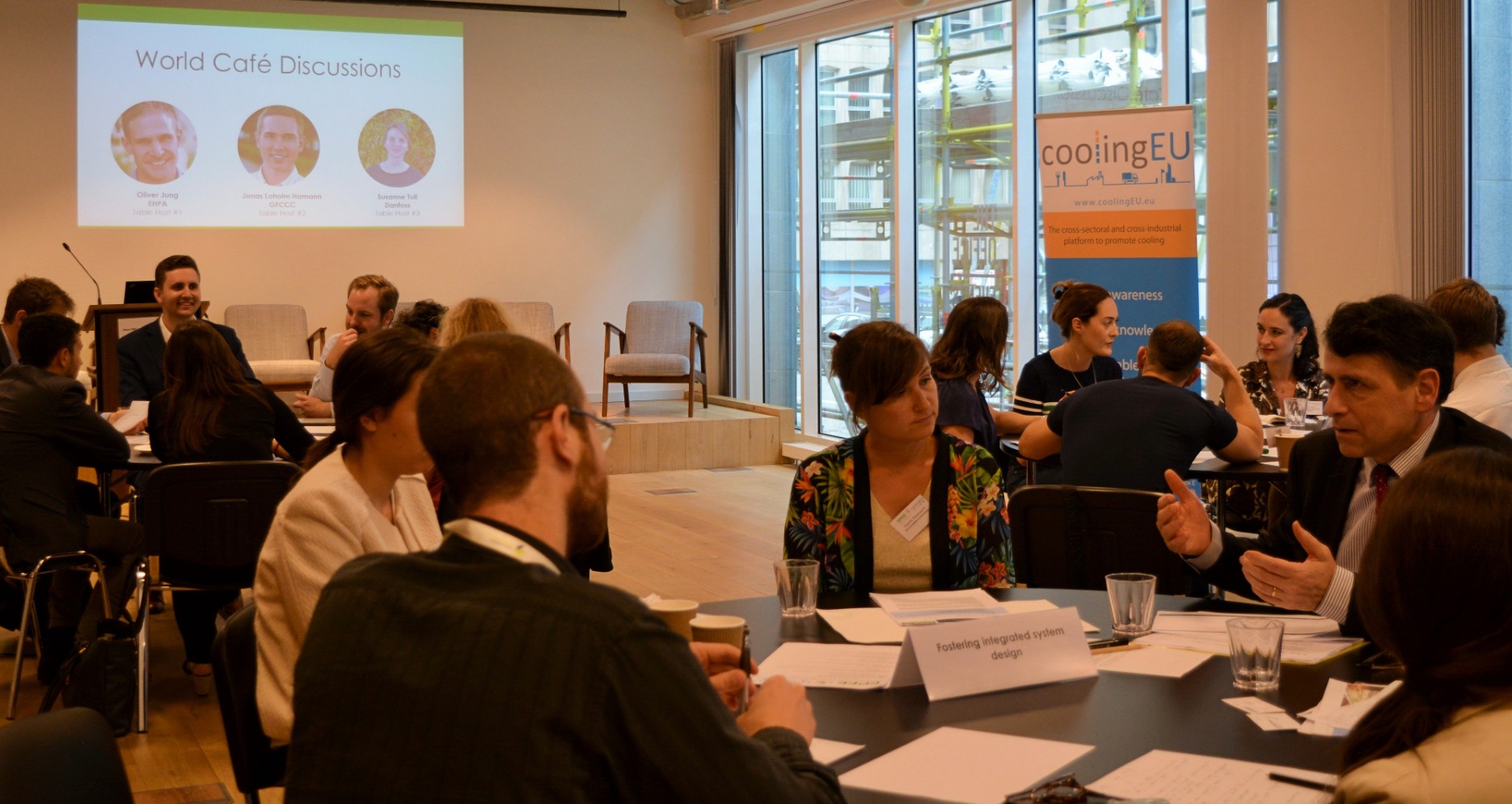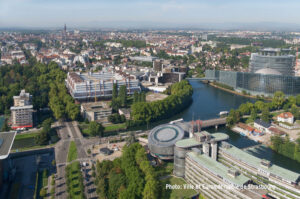Addressing the cooling sector’s challenges in the EU energy transition
- News
- 01 July 2019
- by EPEE | CoolingEU
On 20 June 2019, EPEE & CoolingEU hosted a side event during the European Commission’s annual Sustainable Energy Week which addressed the cooling sector’s challenges regarding research, technology roll-out and integrated system design in the context of the EU energy transition. The event was an opportunity for participants to discuss and share ideas on how the sector could best tackle these challenges and lead the way towards sustainable cooling.

With global cooling demand only set to grow, the figures speak for themselves: global energy needs for space cooling are set to triple by 2050 due to the exponential growth in demand for air-conditioning units worldwide. In his opening key-note speech, Didier Coulomb, Director General of the International Institute of Refrigeration, highlighted the rising demand for global cooling as well as its crucial role in citizen’s everyday lives and health. In our modern society, cooling is a necessity; it not only affects our health and comfort, it also helps to prevent food loss and waste. “Cooling is a must; with populations constantly growing, especially in Africa and South Asia, and temperatures reaching new records, the health and economic risks associated with a lack of access to sustainable cooling are increasing exponentially. For instance, the number of heat-sensitive healthcare products increased by 45% from 2011 to 2017; one out of 2 medicines on the market is now heat-sensitive”.
On that note, Andrea Voigt, EPEE’s Director General, invited participants to debate on selected topics in small groups and contribute their ideas on several themes namely:
1. Closing technological gaps through research and innovation
2. Encouraging global roll-out of the most efficient technologies
3. Fostering integrated system design
Participants represented Europe’s cooling sector, climate-focused research institutions, solar and geothermal industries, and the European Commission. Following the fruitful discussions, Andrea Voigt invited the table hosts from EHPA, the Global Food Cold Chain Council, and Danfoss, as well as two other speakers from the Global Cold Chain Alliance and Solar Heat Europe, to summarise the outcomes of the discussions.
Surprisingly, participants did not identify any major technological gaps that prevent the sector from producing energy efficient products. However, there was general agreement that implementation and market take-up are the key issues. Participants also expressed interest in future research focusing on making cooling appliances more installer- and consumer-friendly – especially for SMEs – as well as fostering the hybridization of the cooling energy systems. There should also be more research into broader infrastructure design to fulfill the potential of smart grids and allow the hybridization and digitalisation of appliances.
To ensure the global roll-out of sustainable cooling technologies, participants identified three main solutions: governments should focus on rising consumer awareness, improve market surveillance and ensure global harmonization of legislation and standardization. Participants viewed this issue as a major challenge for the cooling sector, as existing technology could greatly benefit global climate goals if implemented at a faster pace. For this reason, participants are calling for an ambitious technology roll-out and outlined the need for the industry to work hand in hand with governments to increase awareness of possible emissions reductions via sustainable cooling technologies.
Finally, participants agreed that integrated systems are the way forward when it comes to saving energy and emissions. However, discussions also revealed that such systems can be complex, which may discourage enterprises whose core business is not energy. Therefore, more awareness is required as well as better framework conditions and adapted business models, for example focusing on service rather than on products.
Closing the event, Andrea Voigt stated, “On the positive side, participants all agreed that sustainable cooling solutions are readily available. However, there was disappointment at the lack of political will to raise consumer awareness and incentivise the deployment of these solutions. The conclusion was clear: the technologies are ready, but now we need the right framework conditions to develop suitable business models and roll them out on a broader scale.”
The detailed program, presentation and pictures of the event can be found on EPEE website.
For further information, please contact EPEE Secretariat
Tel: +32 2732 704
E-mail: [email protected]
Avenue des Arts 46
B-1000 Brussels
Belgium
***
ABOUT EPEE:
The European Partnership for Energy and the Environment (EPEE) represents the refrigeration, air-conditioning and heat pump industry in Europe. Founded in the year 2000, EPEE’s membership is composed of 48 member companies, national and international associations.
EPEE member companies realize a turnover of over 30 billion Euros, employ more than 200,000 people in Europe and also create indirect employment through a vast network of small and medium-sized enterprises such as contractors who install, service and maintain equipment.
EPEE member companies have manufacturing sites and research and development facilities across the EU, which innovate for the global market.
As an expert association, EPEE is supporting safe, environmentally and economically viable technologies with the objective of promoting a better understanding of the sector in the EU and contributing to the development of effective European policies.
Please see our website (www.epeeglobal.org) for further information.
ABOUT CoolingEU:
CoolingEU is made up of many diverse actors with different requirements and needs but they share the same goal: work for a more efficient and cleaner cooling. To achieve this objective, supporters of coolingEU agreed on the following common goals for the benefit of the whole sector:
- Raise awareness among policy makers and interested parties by sharing and communicating the benefits of a more efficient and cleaner cooling supply.
- Improve the knowledge about cooling by collecting and sharing data and project results and enhance the understanding about the sector and knowledge on different types of cooling.
- Enable progress in research and innovation in the field of sustainable, smart, and efficient cooling by means of exchange and cooperation between the sector, policy makers and researchers, without compromising the confidentiality of proprietary information.
- Improve the consideration of cooling in European energy policy and how the renewables share of cooling is integrated in that policy.
- Please see our website (https://coolingeu.eu/) for further information.
Latest News
-

-
 26.10.2021 Celsius Summit 2021 – Energy Democracy
26.10.2021 Celsius Summit 2021 – Energy Democracy

